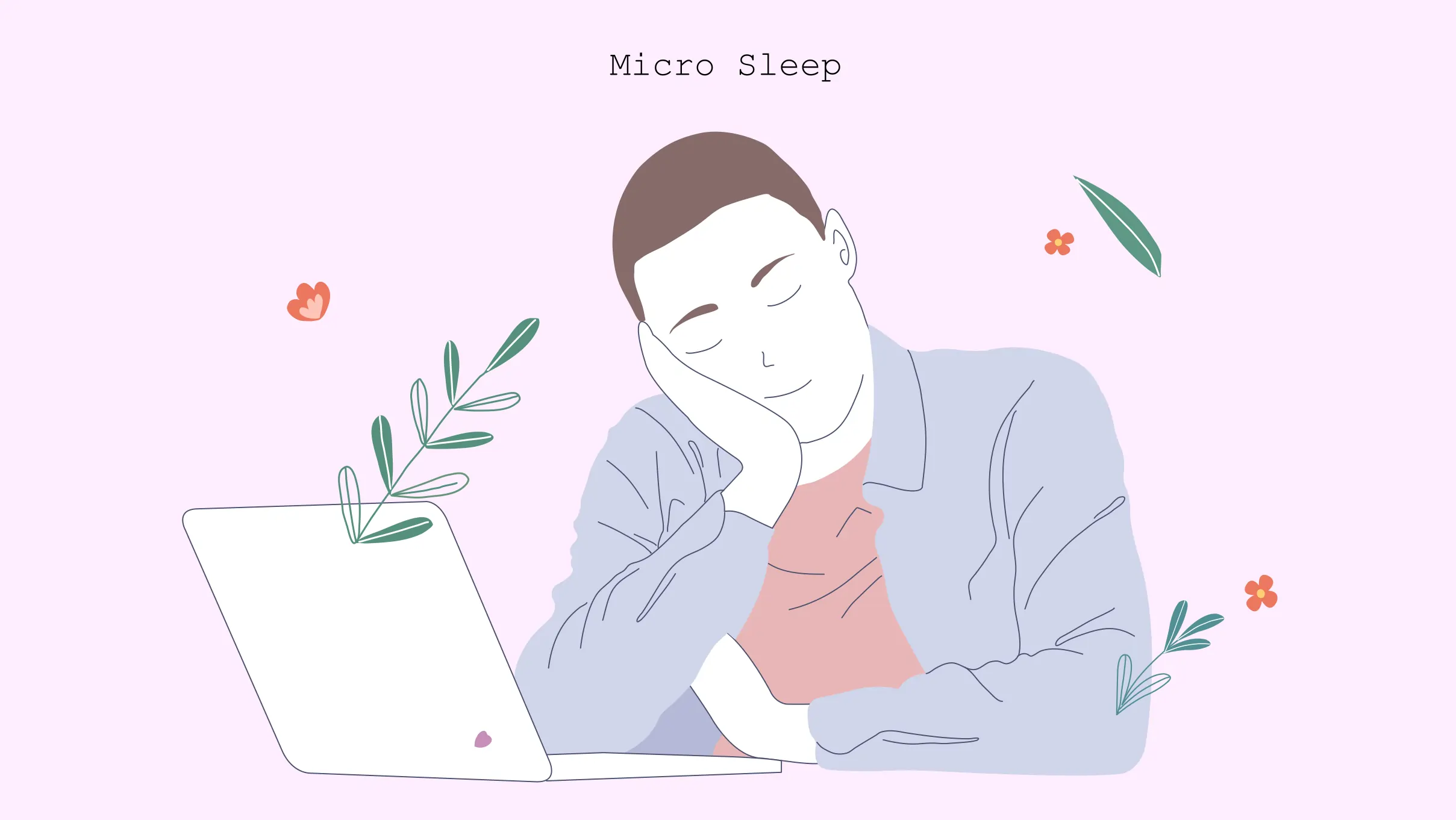Microsleep: Symptoms, Causes, and Preventions
Written by


You must have heard about drivers who fall asleep behind the wheel. Ever wondered why this happens? Well, when you don’t get enough sleep, it can lead to brief lapses of sleep from a few to several seconds. It is known as microsleep. Today, we are here to tell you everything about microsleep disorder, including microsleep meaning. Read ahead to know more.
What Is Microsleep?
What is microsleep? Microsleep is small amounts of sleep that can last for less than 30 seconds, without you even realising that you have fallen asleep. It can occur anytime, even when you are amidst a critical task, such as driving. This is the microsleep definition.
Some of the reasons why you may experience micro naps are;
- If you are suffering from sleep disorders, such as insomnia
- If you are suffering from obstructive sleep apnea
- Narcolepsy, which is a chronic sleep disorder
When Does Microsleep Occur?
Microsleep occurs without any warning, even when you are awake. Usually, you may experience episodes of micro-sleeping when you are sleep-deprived. People experience them when they are immensely sleepy and don’t realise it.
This subject needs some more research. However, it is seen that microsleep occurs more in the afternoon, even when people may not feel too sleepy as they go through a post-lunch dip. But for people who go through a night shift, drowsiness is usually expected when driving or commuting back home.
Symptoms of Microsleep
It is sometimes difficult to detect microsleep as you may doze off even when you are staring right ahead and gain consciousness in a few seconds. However, some of the most common symptoms include;
- Not responding to any information provided to you
- Staring blankly or dropping your head
- Going through sudden body jerks
- Blinking very slowly
- Not being able to remember what you were doing a minute back
The main signs of microsleep or microsleep warning signs that you must look out for are;
- Yawning too much
- Body jerks
- Not able to keep your eyes open
- Blinking frequently
Microsleep Causes
While poor sleep is the leading cause of microsleep, some of the other causes include;
- Diabetes or problems with blood sugar
- Sleep apnea
- Anxiety or depression
- Obesity
- High blood pressure
Microsleep and Sleep Deprivation
One of the main microsleep causes is sleep deprivation. One study found that people going through microsleep episodes were getting almost 90 minutes less sleep. People working in shifts or long hours are at a higher risk. In fact, you don’t have to be continuously sleep-deprived to go through it. According to a study, one night of sleep deprivation where you slept for less than four hours was enough to put you at risk of microsleep.
Risks of Microsleep
If you have been sleep-deprived and performing sensitive tasks, such as driving, surgery or operating heavy machinery, you are at risk of microsleep. Since you are unaware and doze off during microsleep episodes, performing such tasks with less sleep can be dangerous. While they are not harmful in themselves, it is essential to be careful.
Dangers of Microsleep While Driving
Microsleep is when you fall asleep for less than 30 seconds. So, if you are sleep-deprived, you are at risk. So, is microsleep dangerous? Yes. It can be when driving because losing control of the vehicle, even for a few seconds can be life-threatening. Some of the signs you must look out for while driving are;
- Moving away from the lane you were driving unknowingly
- Yawning excessively or missing turns
- Your eyelids feel extremely heavy
Prevention and Treatment of Microsleep
- Since sleep deprivation is one of the main concerns for microsleep, increasing your sleep quantity before you get behind the wheel is ideal.
- If you are driving between states or cities and don’t have a driving companion, it is always advised to pull over in a safe location and take a 30-minute power nap.
- You can also consume about 75 to 100 milligrams of caffeine to enhance your mental alertness.
To treat microsleep, you must get a good night’s rest where you enjoy 7-9 hours of sleep. You can make a few adjustments to your sleep routine to improve the quality. Some of the tips include;
- Avoid caffeine or alcohol before bed as it can disrupt your sleep
- Make sure you turn off the lights and create a comfortable environment
- Don’t opt for any stimulants before bed
- Ensure you set AC to an ideal temperature
When to Talk to Your Doctor
Even after making sleep adjustments and enjoying quality sleep, if you still experience microsleep, it is essential to visit a doctor. With medical intervention, you can understand if you are suffering from any sleep disorder. Also, understanding any underlying condition can detect the cause of sleep deprivation you may be going through.
Conclusion
While microsleep is not dangerous, it can be risky when performing sensitive tasks. Therefore, if you notice the symptoms, it is always ideal to speak with your doctor immediately!
FAQs
What does a microsleep feel like?
You may not know you have had a microsleep episode, as it lasts for a few seconds. However, there are chances that you may not remember what you were doing for a couple of minutes before.
Is microsleep good?
No, microsleep is not good and can indicate an underlying sleep disorder.
How long does a microsleep last?
Microsleep can last for a few to several seconds.
What is meant by microsleep?
Microsleep is a condition where you doze off without realising for a few to several seconds.
How do I fix my microsleep?
While quality sleep can help you, it is still essential to speak with your doctor to check if you have any underlying conditions.
What happens if you don’t sleep for 3 days?
If you don’t sleep for 2 days or 3, you lose your ability to think or focus. As a result, even simple tasks may seem complicated.
people like this article
Written by








